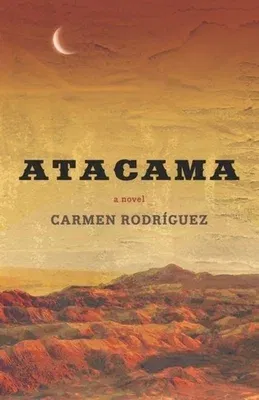Carmen Rodríguez
(Author)AtacamaPaperback, 1 September 2021

Qty
1
Turbo
Ships in 2 - 3 days
Only 2 left
Free Delivery
Cash on Delivery
15 Days
Free Returns
Secure Checkout

Print Length
256 pages
Language
English
Publisher
Roseway Publishing
Date Published
1 Sep 2021
ISBN-10
1773634771
ISBN-13
9781773634777
Description
Product Details
Author:
Book Format:
Paperback
Country of Origin:
US
Date Published:
1 September 2021
Dimensions:
21.41 x
13.79 x
1.6 cm
ISBN-10:
1773634771
ISBN-13:
9781773634777
Language:
English
Pages:
256
Publisher:
Weight:
294.83 gm